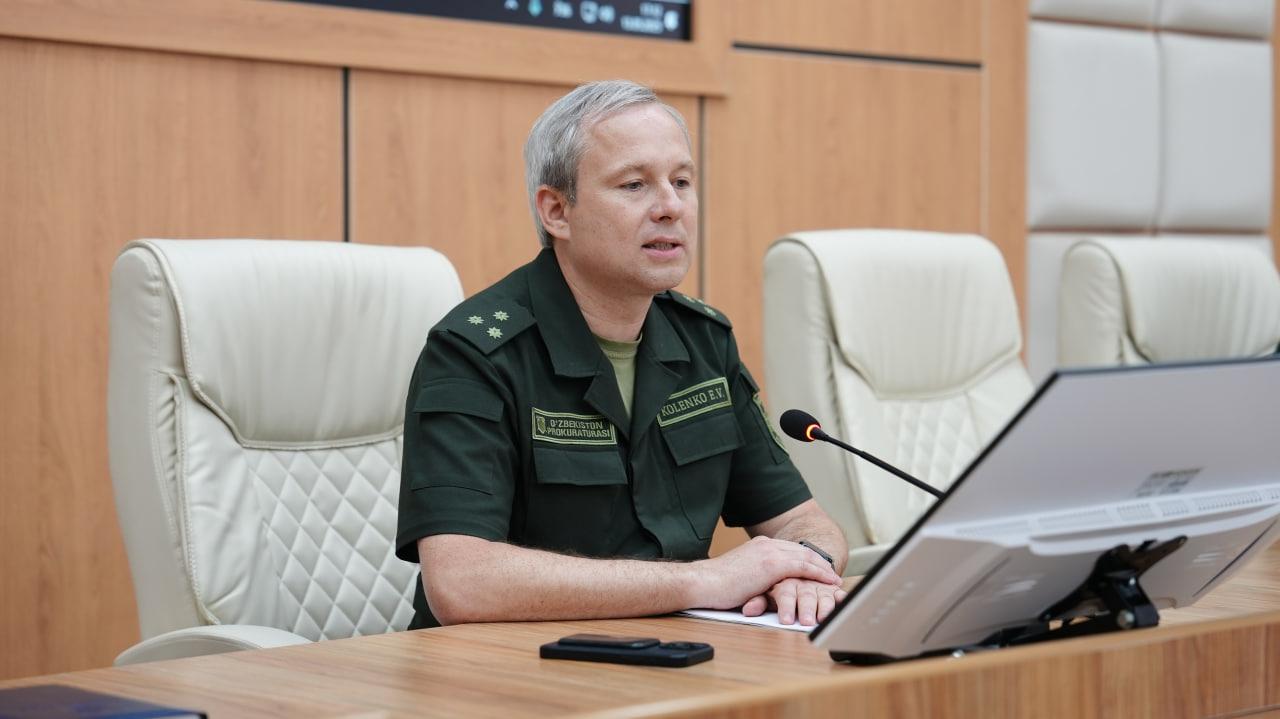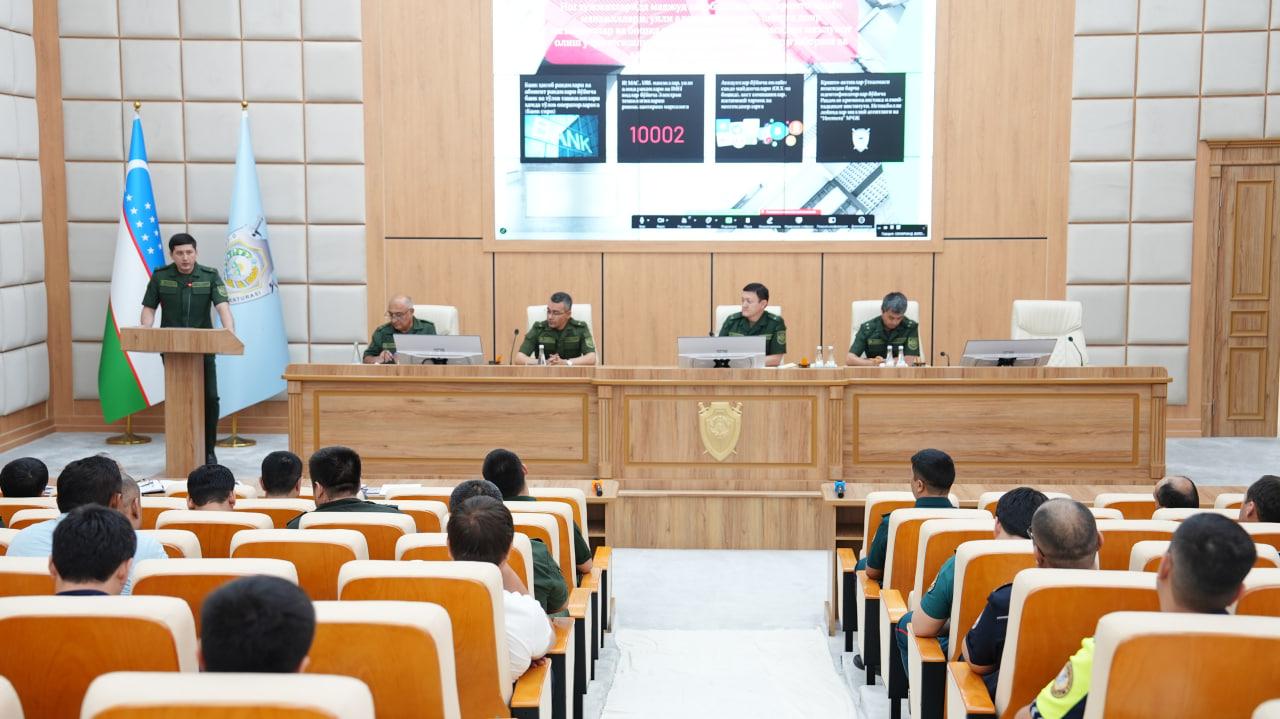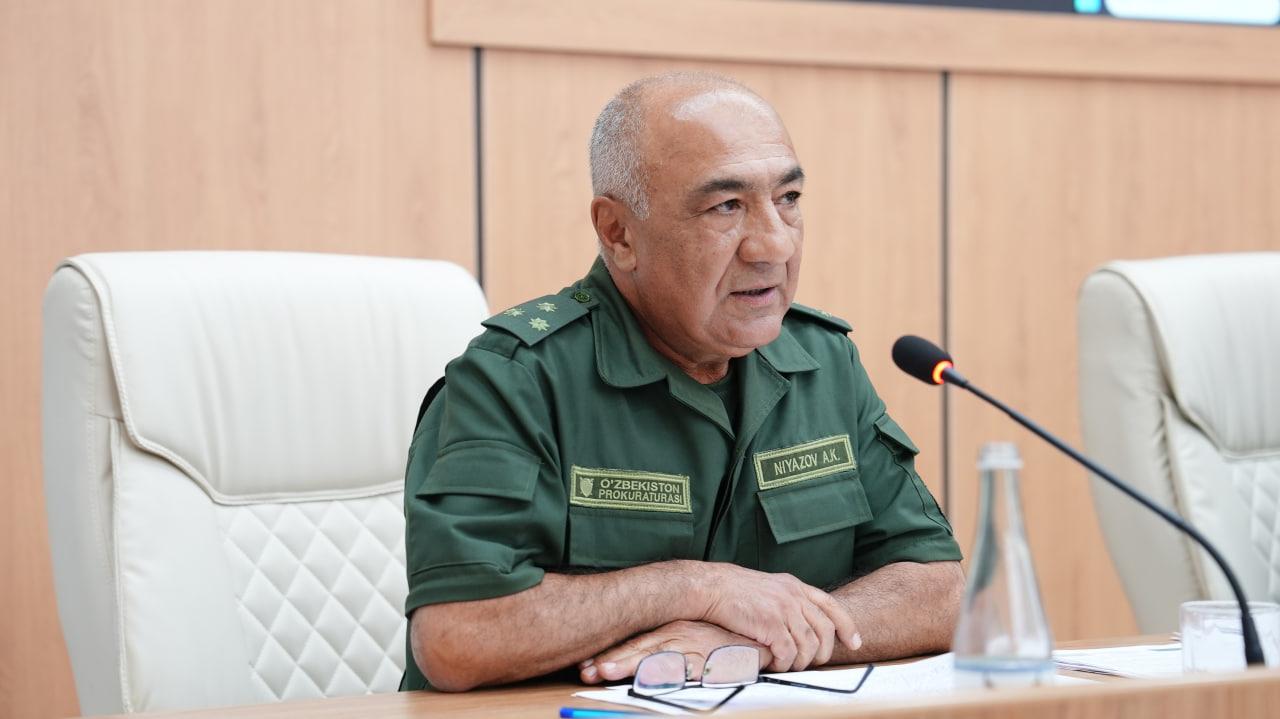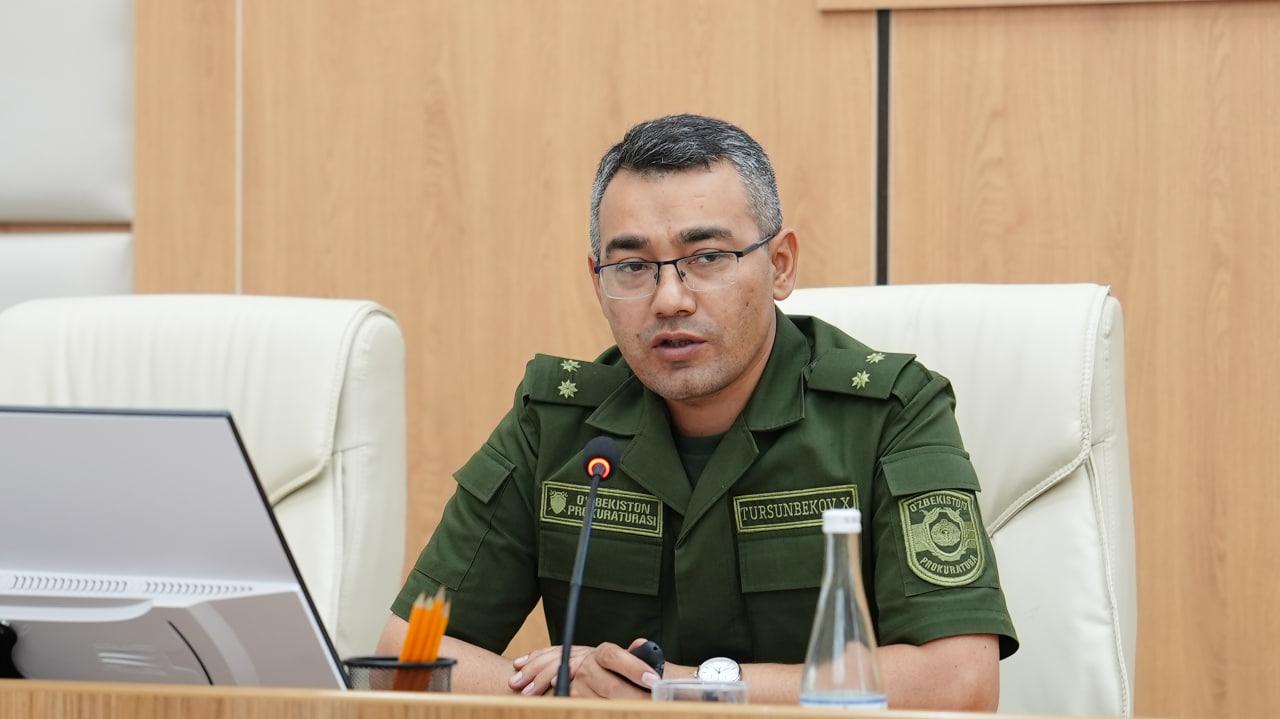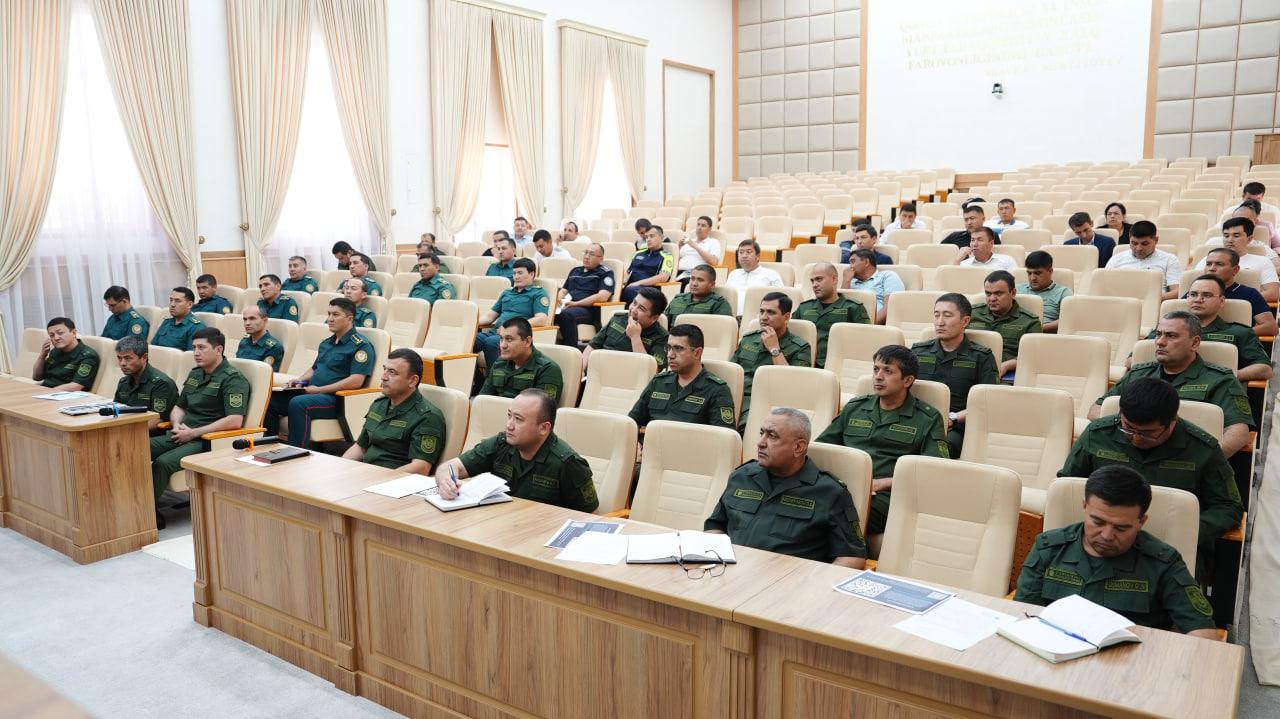Field-based training sessions for prosecutors and law enforcement officers in the Samarkand region
A working group led by the First Deputy Head of the Academy, E.V. Kolenko, conducted another series of field-based training sessions in the Samarkand region. These sessions focused on crime prevention, combating cybercrime, preventing petty corruption, and improving the effectiveness of legal oversight in the field of energy efficiency.
The events were organized at the Samarkand Regional Prosecutor’s Office in a hybrid format, with the participation of the leadership and staff of prosecutor's offices responsible for the mentioned areas, district prosecutors, their deputies and assistants, as well as investigators from regional and district-level prosecutor’s offices and internal affairs bodies.
As part of the session titled “The state of crime committed using information technology, existing problems, and enhancing the effectiveness of solving and investigating such crimes”, explanations were provided regarding the types of expert examinations that may be conducted for investigators and supervising prosecutors during cybercrime investigations. The capabilities of the Academy’s Scientific Research Institute of Digital Forensics were presented, along with recommendations on the effective use of the Academy’s methodological guide titled “Investigator's notebook on investigating crimes in the field of information technology”.
The next training session was devoted to the topic “Creating a safe environment in mahallas and enhancing the effectiveness of the early offense prevention system”. During this session, shortcomings identified in the implementation of daily and planned preventive measures were explained, practical examples were provided on how to address them and organize work effectively, and concrete proposals were made to improve the quality of investigative activities.
The training continued with the theme “Prevention of corruption, including the elimination of petty corruption”. During this session, a detailed report was presented on crimes related to petty and administrative corruption committed in everyday life, along with guidance on conducting daily monitoring activities to prevent such offenses.
During the session “Prosecutorial oversight of compliance with legislation in the use and consumption of energy resources”, participants were informed about regulatory documents and sectoral orders governing oversight of compliance with legislation in the field of energy resource usage, as well as about issues requiring special attention during monitoring activities.
The Academy will continue to hold field-based training sessions in various regions.


